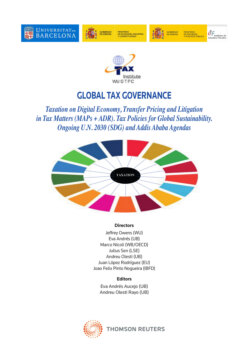Читать книгу Global Tax Governance. Taxation on Digital Economy, Transfer Pricing and Litigation in Tax Matters (MAPs + ADR) Policies for Global Sustainability. Ongoing U.N. 2030 (SDG) and Addis Ababa Agendas - Jeffrey Owens - Страница 33
На сайте Литреса книга снята с продажи.
INCENTIVES FOR COOPERATION
ОглавлениеCryptographic capabilities may be the lynchpin to opening the opportunity for the secured chain approach envisioned by the FTA. Conceptually it might consist of a combination of machine learning algorithms to decide under uncertainty and existing rules-based algorithms to encode and enforce known requirements. The vision is alluring, but as we all know change is hard - and taking risks can be career limiting.
This begs the question – with the taxpayers and tax administrators as key stakeholders, and supported by services and technology firms, what might incentivize change? In the below table we provide an overview of how movement to digital cooperative compliance might enhance existing and open new incentives and goals for all stakeholders:
| Stakeholder | Enhancement of Existing Incentives/Goals | Potential New Incentives |
| Tax Administration | • enhanced revenue, • reduced cost, • reduced burden on business, • provision of value-added business services | • Reduced audit risk assessment workload • Identification of outlier patterns indicative of fraud |
| Taxpayers | • reduced risk from indirect taxes, • data privacy, • reduced administrative burden and cost | • Safe harbor when certified algorithm is used • Some form of value for helping train algorithm with data |
| Services Firms | • implementation of taxpayer business systems | • validation of systems setup, • validation of inputs into and accuracy of machine learning algorithms, • data science services supporting machine learning |
| Technology Firms | • provide rule-based components • provide data analytics and risk management platforms, • host systems | • provide machine learning frameworks |
